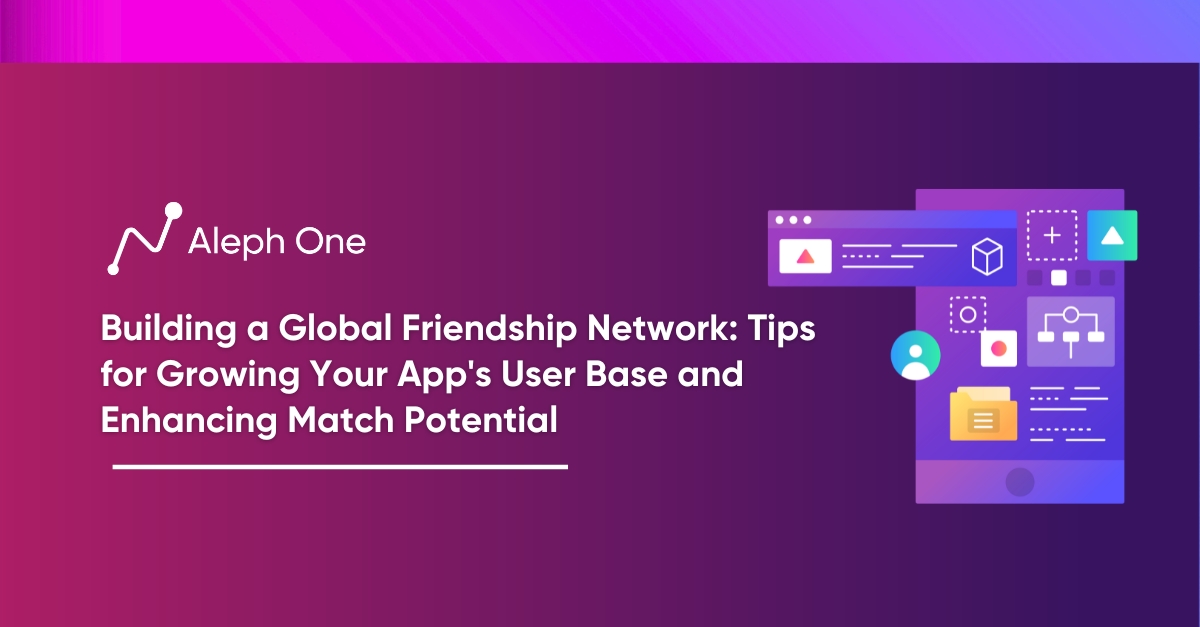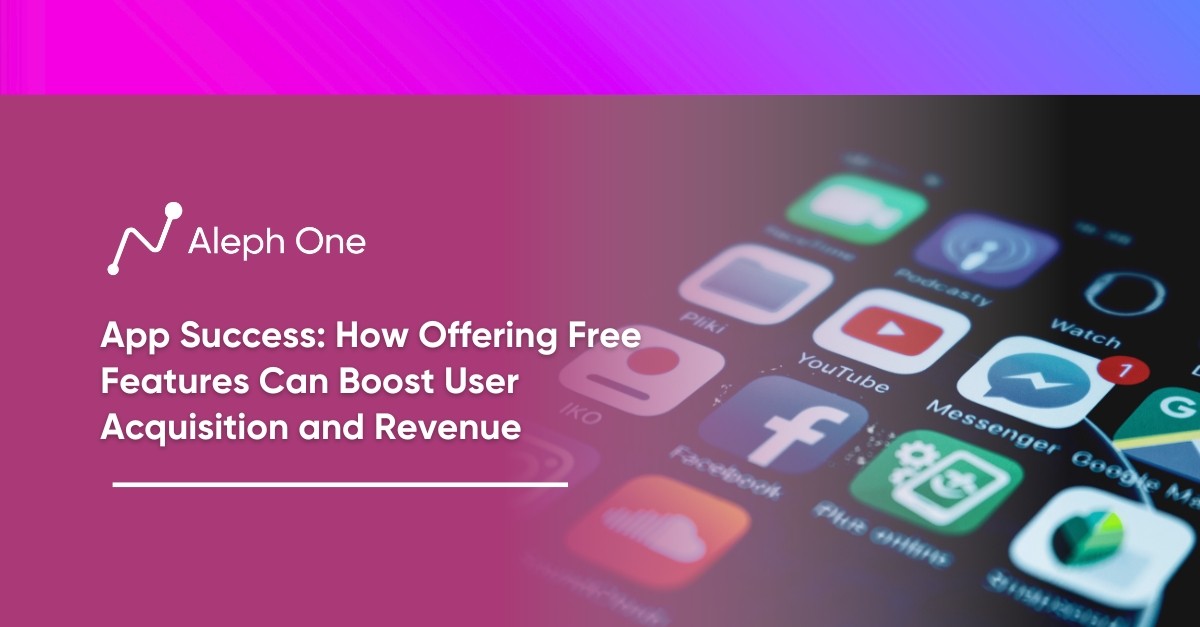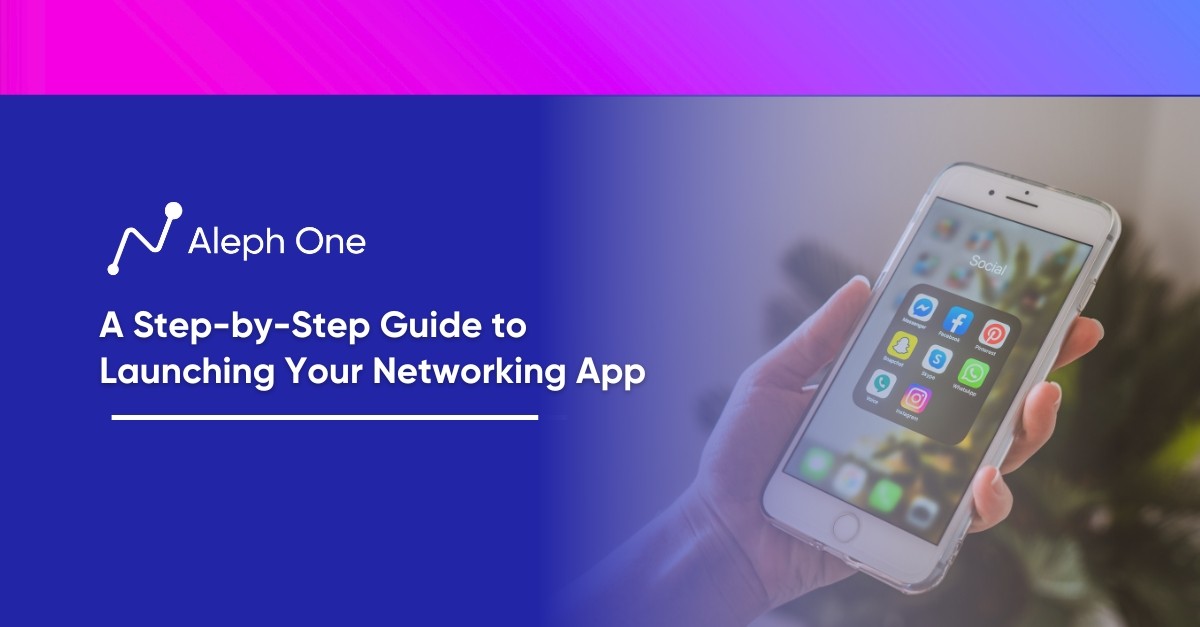Let’s work together to build something amazing. Share your project details and our team will reply to figure out the next steps to your success.

Many people are turning to their smartphones to make new friends. Friendship apps have exploded in popularity, especially among Millennials and Gen Z. According to surveys, over 50% of 18-29 year olds have used an app to make new friends. Although some criticize these apps for lacking authenticity, they are crucial tools against isolation. By fostering offline meetups, they create meaningful relationships. This article explores vital strategies for expanding these app networks and maximizing match potential on a global scale. Friendship apps, bridging the gap between technology and human connection, can transform lives by facilitating authentic relationships in an increasingly digital age.

The Rise of Friendship Apps: How Technology is Changing the Way We Make Friends
The growing loneliness and desire for meaningful connections in an increasingly digital world have fueled the growth of friendship apps. As people become more transient and isolated, traditional means of making friends, like school, work, or community groups, are declining. Apps are stepping in to address this need for social interaction and relationships.
Popular Platonic Connection Platforms
Bumble BFF, Hey! VINA and Patook are some of the most popular friendship apps. They work similarly to dating apps but are focused on platonic connections. Users create profiles, upload photos, list their interests, and can then swipe or like other users to indicate they’d like to connect as friends. When there’s a match, the users can start chatting to get to know each other to meet in person.
Tech-Savvy Appeal to Younger Generations
These apps especially appeal to younger generations who have grown up with technology and social media. The familiar swiping and matching interface makes friendship apps easy to use. They also provide a low-pressure way to put yourself out there and find like-minded people with similar interests or life experiences. For example, Hey! VINA specifically caters to women looking to make new female friends with a focus on empowerment and shared interests.
Balancing Authenticity and Digital Connection
However, some critics argue that friendship apps lack the authenticity of in-person interactions and relationships. They say that technology cannot replace the depth and complexity of human friendships. While this may be true, for many users, friendship apps are a useful tool for combating isolation, making new connections, and enhancing their well-being. Friendship apps can help foster meaningful bonds and relationships when used to facilitate offline meetups and interactions.
The Key Features That Make or Break a Friendship App
Successful friendship apps share common features like interest-based matching, secure profiles, chat functions, and the ability to schedule meetups. However, the apps that thrive go beyond the basics. For example, Bumble BFF’s female-first interface and Patook’s “no flirting” policy have resonated with users looking for genuine connections without romantic expectations.
Hey! VINA: Empowerment and Real-World Bonding
Hey! VINA’s focus on empowering women through friendships and hosting real-world events has built a loyal community. The app provides a safe space for women to bond over shared experiences and support each other’s personal growth. By organizing social events, workshops, and meetups in over 25 cities, Hey! VINA facilitates meaningful interactions that lead to lasting friendships.
Avoiding the “Ghost Town” Fate
In contrast, the apps that fail to address users’ core needs end up as “ghost towns.” Many apps focus too much on algorithms and need more on user experience. With an active community or purpose, people can log in, and the app will stay active.
Must-have Features for a Successful Friendship App
Some of the must-have features for a successful friendship app include:
- A defined niche and mission: Focus on a target demographic or interest group. Have a clear mission to connect people around a shared purpose.
- Thorough profiles: Ask questions that allow people to express their personalities, values, and interests. This helps others determine compatibility and filters out those looking for romance or hookups.
- Smart matching: Use algorithms and filters to suggest potential matches based on shared interests and attributes. But don’t rely entirely on technology – allow people to browse profiles and make their connections.
- Easy communication: Include features like chat, video calling, and group messaging to facilitate conversations. But allow users to control who can contact them and block anyone sending inappropriate messages.
- Opportunities to meet in person: Organize local meetups and events or suggest casual hangouts for people to get together face to face. In-person interactions are the key to turning digital connections into real friendships.
- A safe, inclusive environment: Have strong policies against harassment and discrimination. Moderate the community to quickly address any issues and ensure everyone feels respected.
- Value for users: Decide on a business model that continues enhancing the user experience. Whether through subscriptions, in-app purchases, or partnerships, generate revenue to support community building and new features. But avoid excessive advertising that compromises the user experience.
The Key Challenges of Building a Global Friendship Network
Friendship apps face various challenges in scaling globally. Firstly, they must localize the app to suit different cultures and languages. Things like color schemes, images, and wording that resonate in one country may be off-putting in another. Apps also have to translate their platforms and moderation policies to different languages while retaining the original meaning and spirit.
Navigating Diversity and Norms
Cultural differences pose another challenge. Certain topics of conversation and interactions that are acceptable in one culture may be taboo in another. Friendship apps have to find the right balance between encouraging authentic connections and respecting cultural norms. They also have to educate users on different cultural practices to promote understanding.
Privacy Compliance Across Borders
Navigating different privacy laws and regulations worldwide is difficult for friendship apps. For example, the EU has stricter data privacy and protection laws than the US. Apps have to customize their data collection and security practices to comply with the laws of each country they operate in. Failure to do so can result in legal penalties, damaged reputation, and loss of users’ trust.
Tailoring Revenue Models Globally
Monetization also looks different across countries and cultures. The methods that work in one market may translate poorly to another. Apps must experiment with different revenue models to find the right match for each region. They must also set the right price points for subscriptions and in-app purchases based on users’ purchasing power and willingness to pay.
Building a Global Network
Building a global friendship network requires a significant investment of resources and time. Friendship apps have to hire staff with local knowledge and expertise to understand each new market properly. They also must spend money on marketing, localization, and compliance for different countries. This long-term commitment can be difficult for smaller apps with limited funding and resources.
Challenges vs. Opportunities in Global Expansion
While the challenges of global expansion are many, the potential rewards are huge. Successful friendship apps that manage to build a global network can tap into a much larger base of users and new revenue opportunities. They also gain valuable cultural insights that benefit both the business and the community. With the right strategy and execution, friendship apps can overcome challenges and connect people across borders.
How AI and Matching Algorithms Can Enhance the User Experience
AI and machine learning are transforming how friendship apps connect people. Advanced algorithms can analyze user profiles and interactions to match people based on shared interests, values, and emotional compatibility. This results in more meaningful matches and a better user experience.
AI-Powered Insight
For example, an app can track the topics, images, and links users engage with to determine their interests and passions. If two users frequently like and comment on content related to entrepreneurship or art, the algorithm may match them as they likely share common interests. Apps can also analyze users’ language, tone, and sentiments to gauge their personality, values, and emotional state. If the language patterns of the two users suggest they are both empathetic and optimistic, they may be a good match.
Personalization Through Machine Learning
Some apps use machine learning to customize the matching process for each user. As a user swipes, likes, and passes on different profiles, the algorithm “learns” the attributes of good and bad matches for that individual. The algorithm then optimizes future matches based on the user’s implicit preferences and feedback. This tailored matching helps to reduce wasted time from unsuitable matches and increases the odds of finding compatible friends.
Addressing Algorithmic Biases
However, algorithms also have their limitations and biases, which apps must address. They can reflect and amplify the prejudices of their human creators. Apps should audit their algorithms to ensure they do not discriminate unfairly based on attributes like gender, ethnicity, or sexual orientation. Algorithms also cannot replicate the nuance of human judgment and life experiences.
Balancing AI’s Contribution to Human Connection
While AI and algorithms enhance the matching process, the human connection still depends on users engaging thoughtfully with each other. The role of apps should be to facilitate more meaningful introductions between people, not to replace human effort in building relationships. With the right balance of technology and humanity, friendship apps can enrich lives by sparking new and lasting connections between kindred spirits worldwide. Overall, AI and matching algorithms promise to improve user experience but still need human oversight, wisdom, and values to guide them.
The Future of Friendship Apps and Making Meaningful Connections
While friendship apps have made it easier to meet new people, they must maintain the depth of in-person interactions and relationships. However, they will continue to evolve with technology and user needs.
Bridging Distances Through Virtual Meetups
One trend is the rise of virtual meetups through video chatting. During the COVID-19 pandemic, many used apps like Houseparty and Marco Polo to host virtual meetups, game nights, and casual hangouts with new friends. The ability to see and hear each other in real-time helped to strengthen connections made initially through messaging. Even as in-person events resume, virtual meetups will likely persist as they enable friends to stay in touch when meeting up is not possible.
Unlocking Possibilities with AR and VR
Augmented and virtual reality also have the potential to enhance the friendship app experience. AR filters and lenses can make video chatting more fun and engaging. VR environments could enable users to explore virtual spaces together, like visiting an art gallery or hiking a scenic trail. While nascent, AR and VR technology may ultimately make digital interactions feel more like in-person experiences.
The Value of In-Person Connection
However, many users crave more authentic connections that friendship apps struggle to provide. Meeting in person is the true test of chemistry and compatibility. While apps expand our options for new friends, they cannot replace the relationships built through shared experiences, emotional support and trust over time.
Striking the Balance
Friendship apps’ future depends on balancing digital convenience with the need for meaningful interactions. The most successful apps will not try to replicate real-world friendships but enable connections leading to in-person meetups and relationships. They will embrace new technologies like virtual meetups and AR/VR to enhance the experience, not replace it. And they will continue improving matching algorithms and interfaces to facilitate interactions between people with a high likelihood of forming genuine friendships.
The Role of Friendship Apps in Building Bonds
Friendship apps have the potential to reduce loneliness and help people find their “tribes.” But true friendship will always depend on individuals’ effort to nurture online and offline relationships. While technology shapes how we discover and connect, the timeless qualities of empathy, shared interests, and life experiences remain the foundations of meaningful bonds between people. Friendship apps should aim to facilitate these deeper connections, not compete with them.
Get the latest news and updates from Aleph One in your inbox.



